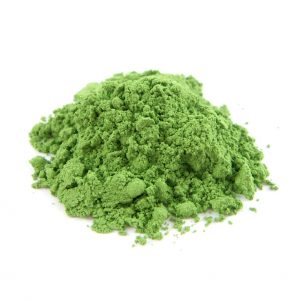Product Details
Place of Origin: China – Trade
Botanical Name
Form
- Anti inflammatory-Substance that reduces inflammation
- Mucoprotective- Substance that protects the mucous membranes
- Demulcent– Substance that has a soothing effect on mucous membranes ,especially in the context of the gastric lining
- Anti ulcer(peptic ) -Substance that prevents or relieves ulceration (usually in gastrointestinal tract )
- Adrenal tonic- Substance that improves the tone ,histology and function of the adrenal glands
- Expectorant- Substance that improves the clearing of excess mucous from lungs by either altering the viscosity of mucous or improving the cough reflex
- Antitussive- Substance that reduces the amount or severity of coughing
- Mild laxative-Substance that facilitates evacuation of the bowel
- Anticariogenic– Substance that reduces the incidences of dental caries
- Estrogenic – Substance It is responsible for the development and regulation of the female reproductive system
The word is derived from Greek, meaning “sweet root” and is known mostly for its use as a sweetener in candies and beverages. However, the plants root has also been used for centuries for its medicinal benefits. The early Egyptians loved the root and used it in tea as a cure-all concoction. Licorice was later imported to the Chinese and also became an important herb in their medicinal tradition.
Licorice root comes from the plant Glycyrrhiza glabra, which belongs to the pea plant family. The herb contains several nutrients and active constituents that give licorice root its potential health benefits. Before you begin taking licorice root for any medicinal purpose, consult your doctor to discuss the possible risks, side effects and drug interactions.
Licorice root has an impressive list of well documented uses and is probably one of the most over-looked of all herbal remedies.
Licorice root contains many anti-depressant compounds and is an excellent alternative to St. John’s Wort.
It has a well-documented reputation for healing ulcers. It can lower stomach acid levels, relieve heartburn and indigestion and acts as a mild laxative. It can also be used for irritation, inflammation and spasm in the digestive tract. Through its beneficial action on the liver, it increases bile flow and lowers cholesterol levels.
Treat PMS and menstrual problems. The phytoestrogens in licorice have a mild estrogenic effect, making the herb potentially useful in easing certain symptoms of PMS.
Indicated for
Addison’s disease, allergic rhinitis, arthritis, athlete’s foot, baldness, bronchitis, bursitis, canker sores, catarrh of the upper respiratory tract, chronic fatigue, colds, colitis and intestinal infections, conjunctivitis, constipation, coughs, dandruff, depression, duodenal-ulcers, emphysema, exhaustion, fibromyalgia, flu, fungal infections, gastritis, gingivitis and tooth decay, gout, hay fever, heartburn, hepatitis, inflamed gallbladder, liver disease, Lyme disease, menopause, prostate enlargement, psoriasis, shingles, sore throat, spleen disorders, tendinitis, throat problems, tuberculosis, ulcers, viral infections, yeast infections. Reducing stomach acid and relieving heartburn and indigestion. Increasing bile flow and lowering cholesterol. Improving resistance to physical and emotional stress.
Licorice Root Herb Notes / Side Effects
Do not confuse with licorice confectionery which contains very little, if any, licorice and is in fact flavored by anise.
Can cause water retention and raised blood pressure. Prolonged use should be avoided if you suffer from high blood pressure.
Can cause mild adrenal stimulation.
Equine use
Licorice root is well known for its anti-ulcer properties to its content of therapeutic properties known as flavanoids. These flavanoids can actually lower gastric secretions so this herb is not suitable for long-term prevention of ulcers. Relieves scouring quickly, calms upset stomachs and reduces bloating. Licorice is also very good in treating some skin conditions including itch. It can be useful to aid a horse coming off prolonged steroid or bute and dexapent treatment. (These properties can aid the horse which is recovering from steroid therapy/abuse)
High caloric or concentrated feed also increases the secretion of stomach acids and will in turn reduce the amount of roughage the horse will ingest. Studies have shown that within one hour of no longer eating roughage, the stomach acidity begins to increase. Feeds high in concentrates also pass rapidly through the system, leaving the hind gut to process poorly digested food, which in turn leads to ulcers. Once ulcers have developed, there are some medications which will help treat the ulcers and reduce the discomfort for the horse.
CAUTIONS: Licorice taken in excess or for a long period of time (over 3 months) can deplete potassium in the body . Licorice should not be taken simultaneously with potassium-depleting diuretics . It should also be avoided when taking digoxin based drugs. licorice is beneficial when using NSAIDs (Non-Steroidal Anti-Inflammatory Drugs) – it helps to avoid the irritating actions NSAIDs have on the stomach and intestines. Liquorice root regulates oestrogen levels and it has been used to facilitate fertility in mares (it is advisable, however, to avoid using it during pregnancy as it will affect hormone levels.




Reviews
There are no reviews yet.